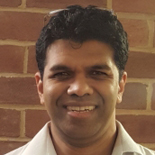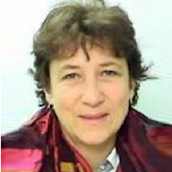Event Summary
Speakers
- Rashmin Gunasekera, World Bank
- Isabelle Forge, GFDRR World Bank
Description
Thursday November 21, 14:00 – 15:30, Room 5
In this session we will present two available methodologies used to assess the socioeconomic impact in the aftermath of a disaster event, exploring their complementarity and discussing their limitations.
Speaker bios
 Rashmin Gunasekera is a Senior Disaster Risk Management Specialist at the World Bank in Washington DC, focusing on disaster risk assessment and risk financing within the Social, Urban, Rural and Resilience Global Practice, specifically in the Latin American and Caribbean region. He has over 15 years of work experience in disaster risk quantification extending to the public sector, re/insurance industry and academia. He has also presented and published innovative research and operations papers on Disaster Risk Management widely. Prior to joining the World Bank in 2012, Rashmin was Divisional Director of a global reinsurance intermediary and a coordinator of the Willis Research Network, the world’s largest collaboration between public science and the financial sector. He currently holds an honorary lectureship at University College London (UCL) and has a MPhil in GIS and Remote Sensing (Uni. of Cambridge, UK) and a PhD in earthquake seismology (Uni. Of Durham, UK).
Rashmin Gunasekera is a Senior Disaster Risk Management Specialist at the World Bank in Washington DC, focusing on disaster risk assessment and risk financing within the Social, Urban, Rural and Resilience Global Practice, specifically in the Latin American and Caribbean region. He has over 15 years of work experience in disaster risk quantification extending to the public sector, re/insurance industry and academia. He has also presented and published innovative research and operations papers on Disaster Risk Management widely. Prior to joining the World Bank in 2012, Rashmin was Divisional Director of a global reinsurance intermediary and a coordinator of the Willis Research Network, the world’s largest collaboration between public science and the financial sector. He currently holds an honorary lectureship at University College London (UCL) and has a MPhil in GIS and Remote Sensing (Uni. of Cambridge, UK) and a PhD in earthquake seismology (Uni. Of Durham, UK).
 Isabelle Forge is a Senior Disaster Risk Management specialist working for the World Bank for 10 years. She studied both Geography and Economics at the University Panthéon-Sorbonne and finalized her studies at Sciences Po Paris with a diploma on Economics and Demography. She worked as an Environmentalist for many years, starting at the Earth Summit in Rio in 1992 as a young expert for the French Government based at the Economic Commission for Latin America and the Caribbean of the United Nations in Santiago, Chile. Specialized in information systems for environment and sustainable development, she supported the development of databases and indicators for sustainable development in Latin America and the European CORINE Land Cover database for the French Environment Institute. In 2001 she moved to Central Africa to take the position of Regional Councilor for the French Ministry of Foreign Affairs, conducing the French regional cooperation on environment and biodiversity in the Congo Basin countries, coordinating programs and projects with 15 technical assistants. She started working on disaster risk management within the French Ministry of Foreign Affairs and participated to the development of the European DRM and sustainable development strategies and policies. In 2009 she joined the World Bank in Brussels to build cooperation with the European Commission thru the Global Facility for Disaster Reduction and Recovery (GFDRR). Based in Paris as a World Bank consultant since 2011, Isabelle Forge participates between others to the implementation of the Tri Partite Agreement between the European Union, the United Nations and the World Bank on Post Disaster Needs Assessment (PDNA). In this framework she supports governments in assessing the socio-economic effects in the aftermath of a disaster implementing the PDNA methodology, and in delivering trainings on this methodology and the Disaster Recovery Framework.
Isabelle Forge is a Senior Disaster Risk Management specialist working for the World Bank for 10 years. She studied both Geography and Economics at the University Panthéon-Sorbonne and finalized her studies at Sciences Po Paris with a diploma on Economics and Demography. She worked as an Environmentalist for many years, starting at the Earth Summit in Rio in 1992 as a young expert for the French Government based at the Economic Commission for Latin America and the Caribbean of the United Nations in Santiago, Chile. Specialized in information systems for environment and sustainable development, she supported the development of databases and indicators for sustainable development in Latin America and the European CORINE Land Cover database for the French Environment Institute. In 2001 she moved to Central Africa to take the position of Regional Councilor for the French Ministry of Foreign Affairs, conducing the French regional cooperation on environment and biodiversity in the Congo Basin countries, coordinating programs and projects with 15 technical assistants. She started working on disaster risk management within the French Ministry of Foreign Affairs and participated to the development of the European DRM and sustainable development strategies and policies. In 2009 she joined the World Bank in Brussels to build cooperation with the European Commission thru the Global Facility for Disaster Reduction and Recovery (GFDRR). Based in Paris as a World Bank consultant since 2011, Isabelle Forge participates between others to the implementation of the Tri Partite Agreement between the European Union, the United Nations and the World Bank on Post Disaster Needs Assessment (PDNA). In this framework she supports governments in assessing the socio-economic effects in the aftermath of a disaster implementing the PDNA methodology, and in delivering trainings on this methodology and the Disaster Recovery Framework.
